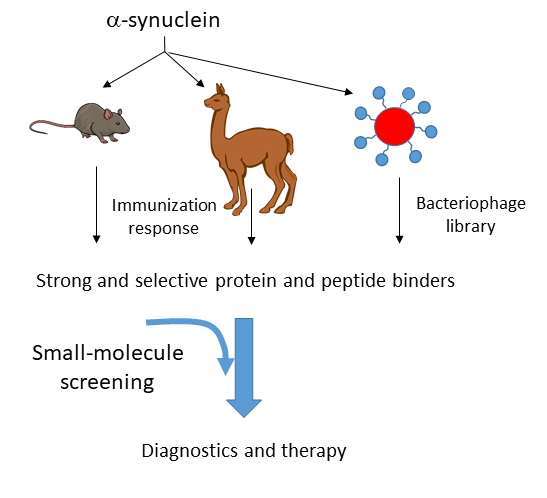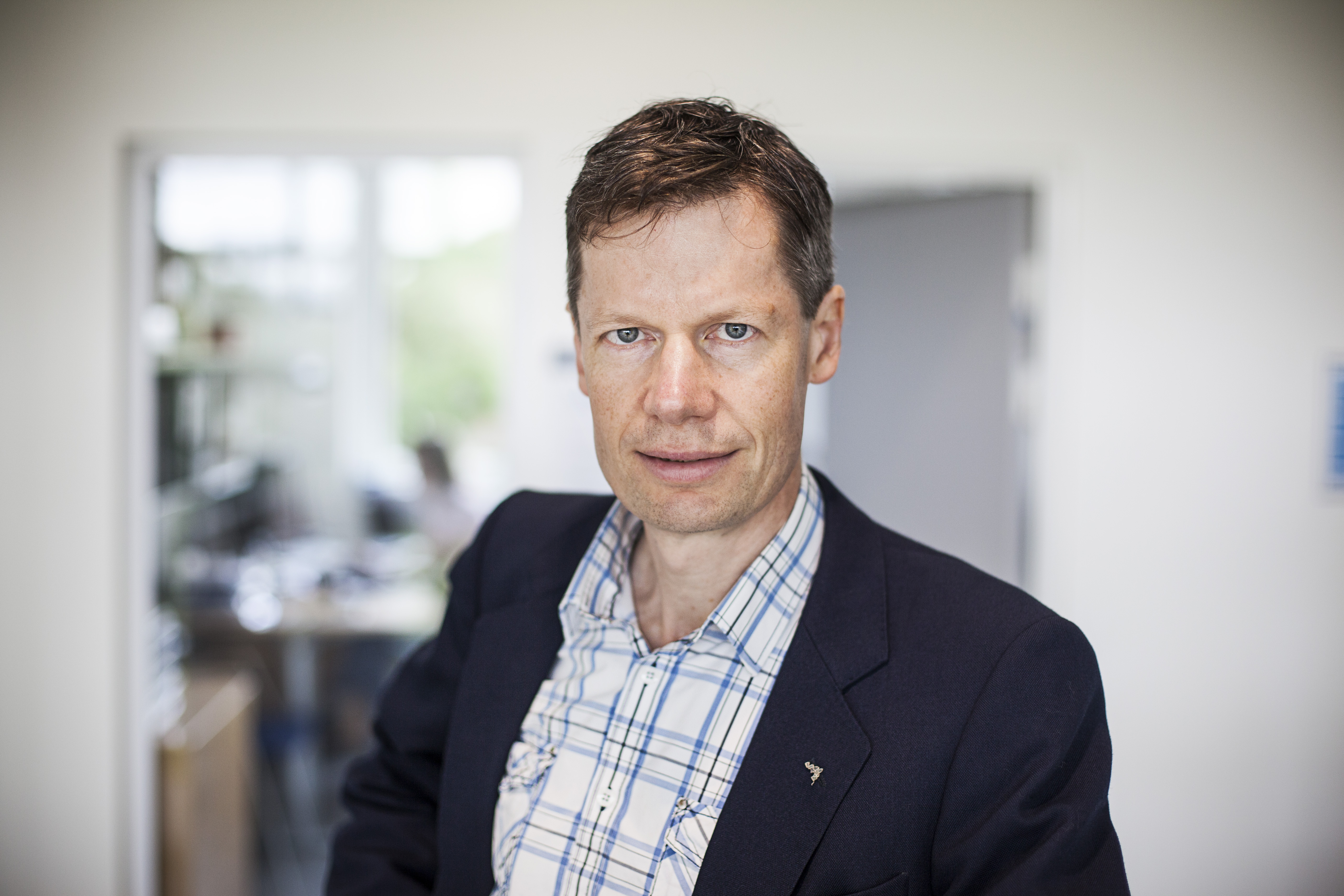DKK 10 million for research into Parkinson's disease
Professor Daniel Otzen from the Interdisciplinary Nanoscience Center (iNANO) at Aarhus University has received DKK 10 million from the Lundbeck Foundation to develop new and better methods to diagnose and prevent Parkinson's disease, among other things using antibodies from llamas.


The grant is for a new research centre, CytoPad (Targeting Cytotoxic Oligomers in Parkinson's Disease).
Parkinsonism causes the nerve cells of the brain to die slowly, and there are strong indications that this cell death is linked to aggregation of the alpha-synuclein (aSN) protein.
Alpha-synuclein is found in large quantities, especially at the synapses, which connect the individual brain cells. When the proteins clump together, they form long, filamentous structures that accumulate in the Lewy bodies inside the nerve cells. During the process, smaller molecules called oligomers are also formed. These are cell toxins and they can damage and ultimately kill nerve cells.
From llamas and mice
At the CytoPad centre, researchers will develop proteins, peptides and small molecules to bind these oligomers and make them harmless.
"We want to use immunization techniques to produce antibodies from both mice and llamas. Antibodies in llamas are smaller than in humans, and we can be use them to develop even smaller nano-objects that we hope can reach their cellular targets even more easily than ordinary antibodies," explains Daniel Otzen.
Furthermore, the research team will be hunting for peptides against antibodies using bacteriophage display techniques. Finally, they hope to use stable complexes between anti/nano-substances and aSN oligomers as the basis for finding small molecules that bind to these oligomers particularly well.
Eight research groups
"If all goes well, we’ll even be able to test the best candidates in mice for their ability to detect oligomers and – even more importantly – stop or inhibit the development of Parkinsonism," says Daniel Otzen.
The DKK 10 million comes from the Lundbeck Foundation's thematic grant "What causes brain disease?". The Money will co-fund a total of nine postdocs and PHD students in a research team consisting of no less than eight research groups from Aarhus University (iNANO, Molecular Biology and Genetics, Chemistry, Biomedicine and Clinical Medicine), the University of Copenhagen, the Technical University of Denmark (DTU) and the Institute for Microbial Technology in India.
Contact:
Professor Daniel Otzen,
iNANO
Aarhus University
Mobile +45 2072 5238
Mail dao@inano.au.dk
